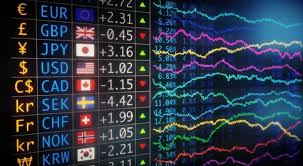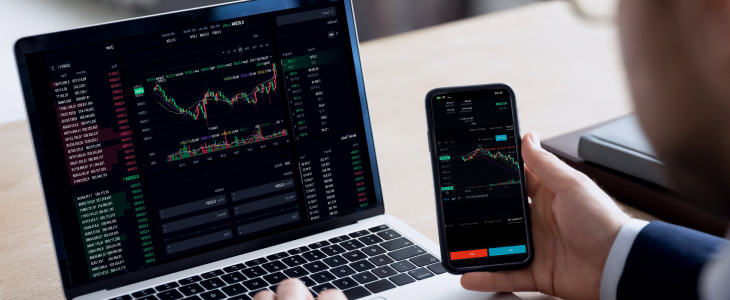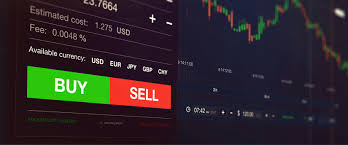
Understanding Forex Currency Trading Brokers
Forex currency trading brokers are essential players in the foreign exchange market, offering a platform for traders to buy and sell different currencies. These brokers serve as intermediaries between retail traders and the larger interbank liquidity network. If you are interested in trading currencies, working with a reliable broker is crucial. For more information on a reputable broker, visit forex currency trading broker protradinguae.com.
What is Forex Trading?
Forex trading, also known as foreign exchange trading or currency trading, involves the exchange of one currency for another with the aim of making a profit. It is the largest financial market in the world, characterized by high liquidity and a 24-hour trading cycle. The Forex market operates through a global network of banks, brokers, and financial institutions, enabling traders to engage in a diverse range of currency pairs.
The Role of Forex Brokers
Forex brokers facilitate trading activities for both retail and institutional traders. They provide access to the market by offering trading platforms, research tools, and analytical resources. By acting as a bridge between the trader and the liquidity providers, brokers enable individuals to trade currencies conveniently. They earn their income through spreads, commissions, or fees associated with trading activities.
Types of Forex Brokers
There are several types of Forex brokers in the market, each catering to different trader needs:
- Market Makers: They create a market for currency pairs by providing liquidity and setting bid and ask prices. They can control spreads and typically are more accessible to novice traders.
- ECN Brokers: Electronic Communication Network (ECN) brokers connect traders directly to the market, allowing them to trade with other participants without interference. They often have tighter spreads and charge commissions per trade.
- STP Brokers: Straight Through Processing (STP) brokers route client orders directly to liquidity providers. They may aggregate prices from multiple sources to offer better rates to traders.
- DMA Brokers: Direct Market Access (DMA) brokers provide traders with a direct connection to the market, offering increased transparency and lower latency in order execution.

Key Features to Look for in a Forex Broker
When selecting a Forex broker, consider the following key features:
- Regulation: Ensure that the broker is regulated by a reputable financial authority. This helps to protect your investment and ensures compliance with industry standards.
- Trading Platforms: Look for user-friendly trading platforms with advanced charting tools and indicators. Popular platforms include MetaTrader 4, MetaTrader 5, and proprietary broker platforms.
- Spreads and Commissions: Compare the trading costs, including spreads, commissions, and any hidden fees. A lower cost structure is typically more favorable for traders.
- Leverage: Leverage can amplify gains, but it also increases risk. Understand the leverage offered and choose a level that aligns with your trading strategy.
- Customer Support: Good customer support is essential, especially when encountering issues. Choose brokers with responsive customer service channels.
- Account Types: Consider brokers that offer different account types to cater to your specific trading needs and expertise level.
The Importance of Research and Education
Successful Forex trading requires a solid understanding of market fundamentals, technical analysis, and trading strategies. Many brokers provide educational resources like webinars, tutorials, and articles to help traders improve their skills. Investing time in education can empower you to make informed trading decisions.
Conclusion
Choosing the right Forex currency trading broker is a vital step towards successful trading in the forex market. By understanding different broker types and evaluating key features, you can make an informed decision that suits your trading style. Always conduct thorough research and stay updated on market trends to enhance your trading experience.
FAQs about Forex Brokers
1. What is the difference between a regulated and unregulated Forex broker?

A regulated broker operates under the oversight of a financial authority, which provides a level of security and transparency for traders. In contrast, an unregulated broker may lack oversight, posing a higher risk for traders.
2. Can I trade Forex with a small capital?
Yes, many brokers offer accounts with low minimum deposits and allow traders to utilize leverage, enabling them to trade with smaller capital. However, it’s important to manage risks effectively.
3. How do I open a trading account with a Forex broker?
To open a trading account, visit the broker’s website, fill out the registration form, provide necessary identification documents, and fund your account. You can typically choose between a demo or live trading account.
4. Are Forex brokers trustworthy?
While many Forex brokers are reputable, it is essential to choose one that is regulated and has positive reviews from other traders. Conduct thorough research to find a trustworthy broker.
5. What should I do if I have a problem with my broker?
If you encounter issues with your broker, first try to resolve it through their customer support. If unresolved, consider contacting the regulatory body under which the broker operates or seek legal advice.



